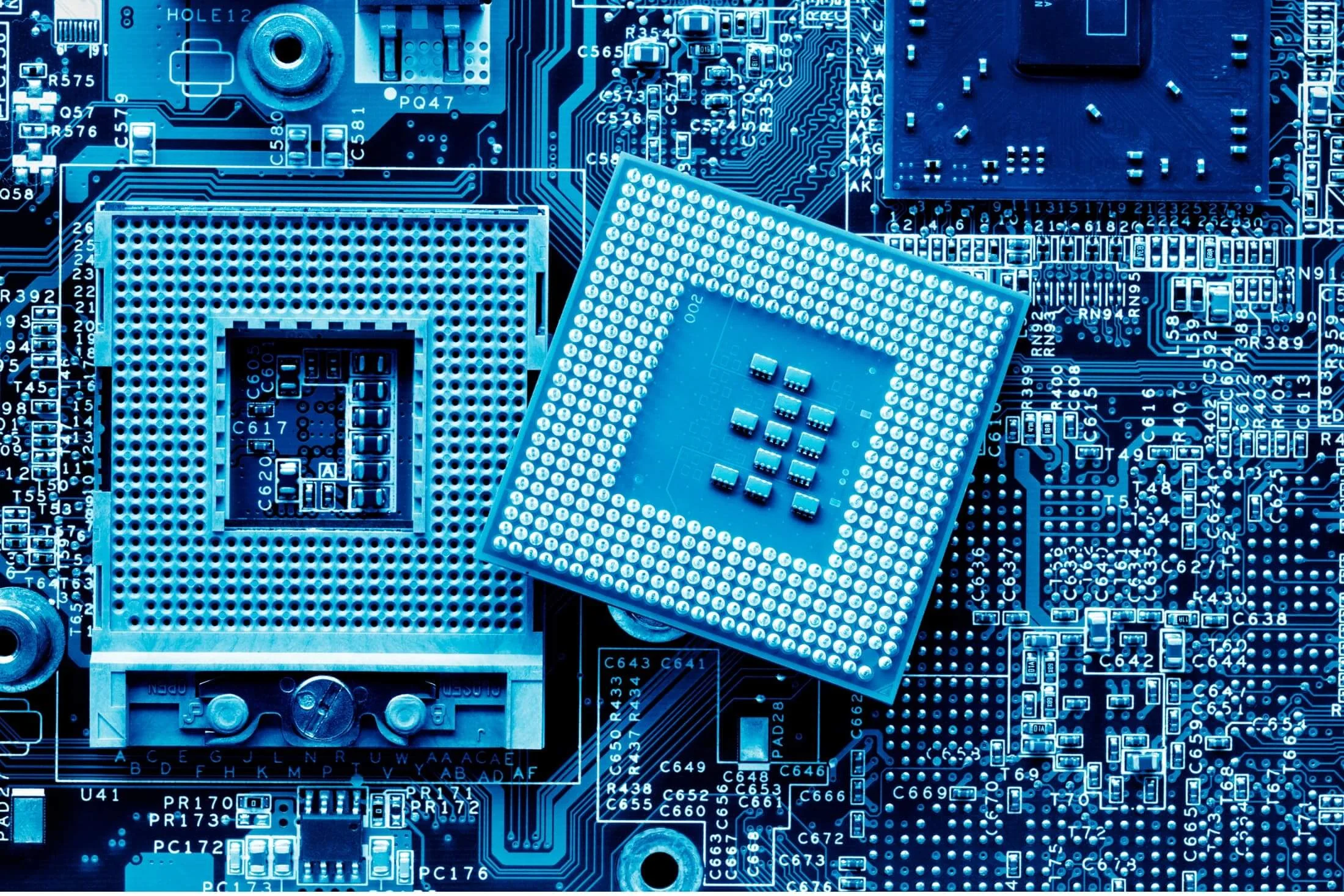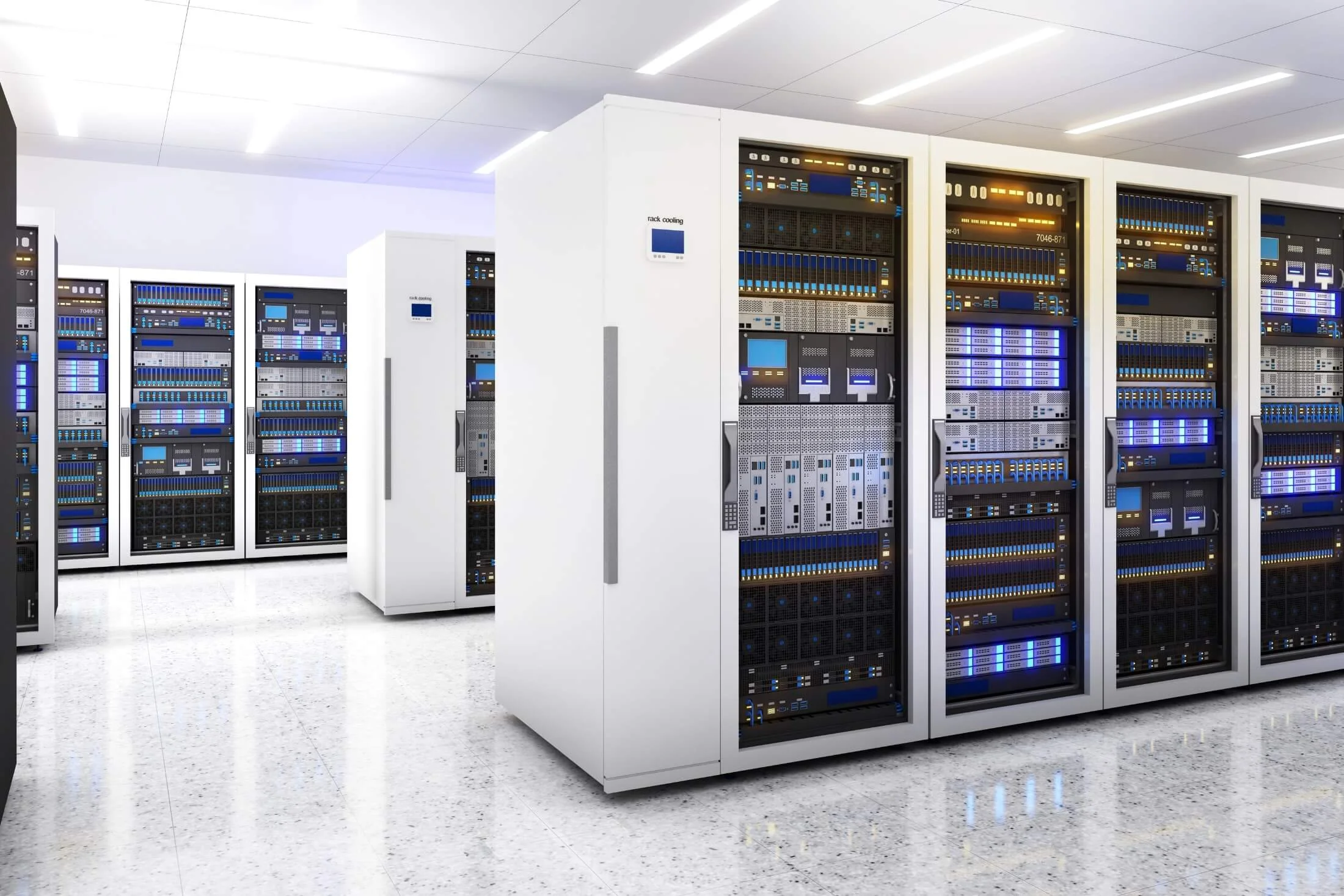Business Technology News Roundup: Sep 26, 2025
Dive deep into the week's biggest US tech stories: Intel seeks Apple investment, TikTok's $14B US deal advances, record venture funding, Nvidia's $100B bet, and quantum computing breakthrough.
Introduction: The week of September 22-26, 2025, delivered a compelling narrative of technological transformation and strategic realignment across the American IT landscape. From unprecedented corporate partnerships and regulatory breakthroughs to record-breaking funding rounds that signal investor confidence in artificial intelligence's future, this period highlighted the dynamic forces reshaping the industry. These five stories represent the most significant developments that will influence technology markets, innovation trajectories, and competitive dynamics in the months ahead.
Stories

In a move that underscores the dramatic shifts occurring within Silicon Valley's power structure, Intel has approached Apple about a potential strategic investment as the struggling chipmaker seeks to stabilize its finances and regain competitive footing against rivals. This unprecedented development, first reported on September 25, 2025, represents a remarkable reversal of fortune for Intel, which once dominated the processor market that powered Apple's Macintosh computers before losing that business to Apple's custom silicon initiative.
The discussions between Intel and Apple reflect Intel's urgent need for capital injection as the company navigates one of the most challenging periods in its 56-year history. Intel's market capitalization has declined by approximately 60% since its 2021 peak, while the company faces mounting pressure from competitors including NVIDIA in the AI chip market, AMD in both consumer and data center processors, and TSMC in advanced manufacturing processes.
For Apple, a strategic investment in Intel could serve multiple strategic objectives beyond financial returns. The iPhone maker has been working to reduce its dependence on TSMC for chip manufacturing, particularly as geopolitical tensions between the United States and China create supply chain uncertainties. An investment in Intel would provide Apple with greater influence over domestic semiconductor manufacturing capabilities while potentially securing priority access to Intel's foundry services as the company seeks to become a contract manufacturer for other firms.
Industry analysts suggest the potential partnership could extend beyond financial investment to include technology sharing agreements and joint development projects. Intel's expertise in x86 architecture and manufacturing processes could complement Apple's chip design capabilities, potentially leading to innovations in areas such as data center processors or specialized AI chips for enterprise applications.
The timing of Intel's outreach coincides with the company's broader restructuring efforts, which have included laying off approximately 25,000 employees and divesting non-core business units to preserve cash for research and development investments. Intel CEO Pat Gelsinger has emphasized the company's commitment to regaining technology leadership through its "IDM 2.0" strategy, which combines internal manufacturing with strategic use of external foundries.

President Donald Trump signed an executive order on September 25, 2025, clearing the regulatory pathway for American investors to acquire TikTok's US operations in a deal valued at approximately $14 billion, marking a pivotal moment in the ongoing US-China technology rivalry. This development represents the culmination of years of national security concerns about Chinese-owned ByteDance's control over the popular social media platform used by over 170 million Americans.
The proposed ownership structure involves a consortium of American investors, including Oracle as the primary technology partner, which will take responsibility for recreating TikTok's recommendation algorithm specifically for US users while ensuring all American user data remains within domestic borders. Under this arrangement, Oracle will essentially reverse-engineer TikTok's core algorithmic functionality to create an American version that maintains the platform's user experience while addressing government security concerns.
However, recent reporting reveals the complex financial dynamics underlying the deal. Despite the American ownership structure, ByteDance and Chinese stakeholders will retain more than half of the profits generated by TikTok's US operations through licensing agreements and revenue-sharing arrangements. This structure allows the Trump administration to claim victory in securing American control over the platform while enabling ByteDance to maintain significant economic benefits from its US user base.
The deal's implications extend far beyond TikTok itself, establishing precedents for how foreign-owned technology platforms may be restructured to address national security concerns. The requirement for Oracle to recreate TikTok's algorithm demonstrates the US government's willingness to mandate technology transfer and domestication for critical digital infrastructure, potentially setting the stage for similar requirements affecting other Chinese technology companies operating in American markets.
Oracle's central role in the arrangement represents a significant victory for the cloud computing company, which has struggled to compete with Amazon Web Services, Microsoft Azure, and Google Cloud in the broader enterprise cloud market. By becoming TikTok's exclusive technology infrastructure provider, Oracle secures a high-profile reference customer while demonstrating its capabilities in handling massive-scale consumer applications requiring real-time content delivery and personalization.

September 22-26, 2025, witnessed one of the most substantial venture capital deployment weeks in recent history, with over $1.6 billion flowing into US and European startups focused on artificial intelligence infrastructure, enterprise software, and emerging technologies. This funding surge, led by Nscale's record-setting $1.1 billion Series B round, demonstrates continued investor conviction in AI's transformative potential despite mounting concerns about market valuations and regulatory oversight.
Nscale's funding round, officially the largest Series B in European venture capital history, was led by Norwegian energy firm Aker ASA with participation from technology giants Microsoft, OpenAI, NVIDIA, and Dell. The UK-based company is developing AI-optimized data centers powered entirely by renewable hydroelectric energy, addressing both the computational demands of advanced AI models and growing environmental concerns about data center energy consumption. The funding will enable Nscale to deploy "AI factory" supercomputing campuses containing up to 100,000 GPUs while expanding its cloud platform for enterprise customers.
The week's other significant funding rounds reflected diverse investor interest across AI application areas. Factory, a San Francisco startup developing AI-powered software development tools, raised $50 million in Series B financing led by NEA, with participation from Sequoia Capital, J.P. Morgan, and NVIDIA. Factory's "Droid" agents have demonstrated superior performance on industry coding benchmarks, positioning the company to capitalize on growing enterprise demand for automated software development capabilities.
Auterion's $130 million Series B round, led by Bessemer Venture Partners, highlighted investor enthusiasm for AI applications in defense and national security contexts. The Arlington-based company's AuterionOS platform enables coordination of autonomous drone swarms across air, land, and sea domains, with existing Pentagon contracts providing validation of the technology's military applications.
The funding landscape also revealed investor appetite for AI solutions addressing specific vertical market needs. Juicebox raised $30 million in Series A funding from Sequoia Capital to enhance its AI-powered recruiting platform, which uses large language models to identify qualified candidates that traditional keyword-based searches might overlook. Similarly, Light secured $30 million from Balderton Capital to develop AI-native financial operations software designed for fast-growing multinational companies.
These funding rounds collectively demonstrate venture capital's strategic focus on AI infrastructure, enterprise applications, and specialized vertical solutions rather than speculative consumer-facing AI products. The participation of strategic investors like Microsoft, NVIDIA, and Dell alongside traditional venture capital firms suggests these deals reflect genuine market demand rather than speculative bubble dynamics.

NVIDIA's announcement of a potential $100 billion investment in OpenAI on September 22, 2025, represents the largest single corporate investment in artificial intelligence infrastructure to date, fundamentally altering the competitive dynamics of the AI industry while raising profound questions about market concentration and capital efficiency. This unprecedented financial commitment extends far beyond traditional venture investment to encompass a comprehensive partnership spanning data center construction, chip development, and long-term exclusive supply agreements.
The investment structure involves NVIDIA providing custom H100 and next-generation Blackwell GPUs alongside engineering support for massive data center deployments that will enable OpenAI to scale its language models toward artificial general intelligence. Industry experts estimate this infrastructure will require electrical capacity equivalent to several nuclear power plants, representing one of the largest private energy consumption projects in American history.
NVIDIA's commitment reflects the company's confidence in AI's continued scaling trajectory despite mounting industry concerns about the sustainability of current development approaches. The partnership includes provisions for OpenAI to maintain exclusive access to NVIDIA's most advanced processors for at least five years, potentially providing significant competitive advantages over rivals including Google's Gemini, Anthropic's Claude, and Meta's Llama models.
The announcement triggered significant market reactions, with NVIDIA shares gaining 4% immediately following the news while broader technology indices reached new record highs. However, the investment also intensified scrutiny from financial analysts questioning whether massive AI infrastructure spending will generate proportional returns. Prominent hedge fund manager David Einhorn issued warnings about potential "capital destruction" resulting from excessive AI infrastructure investment, suggesting the industry may be entering a speculative bubble phase.
The NVIDIA-OpenAI partnership extends beyond financial investment to include joint development of specialized AI processors and data center architectures optimized for training and inference workloads. This collaboration could accelerate the development of more efficient AI systems while potentially creating proprietary technologies that disadvantage competitors lacking similar partnerships.
Critics have raised concerns about the circular nature of AI industry financing, noting that NVIDIA simultaneously invests in AI companies while serving as their primary hardware supplier. This arrangement creates potential conflicts of interest and may contribute to artificial demand for NVIDIA's products, complicating assessments of genuine market demand for AI infrastructure.

HSBC announced on September 25, 2025, that it has successfully deployed IBM's Heron quantum processor for live financial market operations, marking the first practical application of quantum computing technology in global banking systems. This groundbreaking implementation demonstrates quantum computing's evolution from experimental research to practical business applications, potentially revolutionizing how financial institutions approach complex computational challenges including risk modeling, portfolio optimization, and fraud detection.
The deployment utilizes IBM's 133-qubit Heron processor to perform complex portfolio optimization calculations that would require exponentially longer processing times using traditional computing systems. HSBC's quantum implementation focuses initially on currency hedging strategies and risk assessment models that involve simultaneous analysis of thousands of variables across global markets. Early results suggest quantum algorithms can identify optimal trading strategies up to 1000 times faster than classical approaches for certain problem types.
This achievement represents a significant milestone in quantum computing's commercial viability, as financial services institutions have long been identified as early adopters due to their computational intensity requirements and willingness to invest in competitive advantages. HSBC's success could accelerate quantum adoption across the banking industry, potentially creating new competitive dynamics as institutions with quantum capabilities gain significant advantages in high-frequency trading, risk management, and customer personalization.
The technical implementation required extensive collaboration between HSBC's quantitative research teams and IBM's quantum computing division to develop specialized algorithms optimized for the Heron processor's specific capabilities and limitations. Unlike classical computers that process information using binary bits, quantum systems leverage quantum mechanical properties including superposition and entanglement to perform certain calculations exponentially faster.
HSBC's quantum computing initiative extends beyond trading applications to encompass fraud detection systems that can analyze complex patterns across millions of transactions simultaneously. The bank's quantum algorithms can identify subtle correlations and anomalies that might indicate fraudulent activity while minimizing false positive alerts that disrupt legitimate customer transactions.
The successful deployment also highlights quantum computing's potential applications in regulatory compliance and stress testing scenarios required by financial regulators. Quantum systems can model complex economic scenarios and assess portfolio resilience under extreme market conditions more comprehensively than traditional risk management systems.

President Donald Trump signed an executive order on September 25, 2025, clearing the regulatory pathway for American investors to acquire TikTok's US operations in a deal valued at approximately $14 billion, marking a pivotal moment in the ongoing US-China technology rivalry. This development represents the culmination of years of national security concerns about Chinese-owned ByteDance's control over the popular social media platform used by over 170 million Americans.
The proposed ownership structure involves a consortium of American investors, including Oracle as the primary technology partner, which will take responsibility for recreating TikTok's recommendation algorithm specifically for US users while ensuring all American user data remains within domestic borders. Under this arrangement, Oracle will essentially reverse-engineer TikTok's core algorithmic functionality to create an American version that maintains the platform's user experience while addressing government security concerns.
However, recent reporting reveals the complex financial dynamics underlying the deal. Despite the American ownership structure, ByteDance and Chinese stakeholders will retain more than half of the profits generated by TikTok's US operations through licensing agreements and revenue-sharing arrangements. This structure allows the Trump administration to claim victory in securing American control over the platform while enabling ByteDance to maintain significant economic benefits from its US user base.
The deal's implications extend far beyond TikTok itself, establishing precedents for how foreign-owned technology platforms may be restructured to address national security concerns. The requirement for Oracle to recreate TikTok's algorithm demonstrates the US government's willingness to mandate technology transfer and domestication for critical digital infrastructure, potentially setting the stage for similar requirements affecting other Chinese technology companies operating in American markets.
Oracle's central role in the arrangement represents a significant victory for the cloud computing company, which has struggled to compete with Amazon Web Services, Microsoft Azure, and Google Cloud in the broader enterprise cloud market. By becoming TikTok's exclusive technology infrastructure provider, Oracle secures a high-profile reference customer while demonstrating its capabilities in handling massive-scale consumer applications requiring real-time content delivery and personalization.

September 22-26, 2025, witnessed one of the most substantial venture capital deployment weeks in recent history, with over $1.6 billion flowing into US and European startups focused on artificial intelligence infrastructure, enterprise software, and emerging technologies. This funding surge, led by Nscale's record-setting $1.1 billion Series B round, demonstrates continued investor conviction in AI's transformative potential despite mounting concerns about market valuations and regulatory oversight.
Nscale's funding round, officially the largest Series B in European venture capital history, was led by Norwegian energy firm Aker ASA with participation from technology giants Microsoft, OpenAI, NVIDIA, and Dell. The UK-based company is developing AI-optimized data centers powered entirely by renewable hydroelectric energy, addressing both the computational demands of advanced AI models and growing environmental concerns about data center energy consumption. The funding will enable Nscale to deploy "AI factory" supercomputing campuses containing up to 100,000 GPUs while expanding its cloud platform for enterprise customers.
The week's other significant funding rounds reflected diverse investor interest across AI application areas. Factory, a San Francisco startup developing AI-powered software development tools, raised $50 million in Series B financing led by NEA, with participation from Sequoia Capital, J.P. Morgan, and NVIDIA. Factory's "Droid" agents have demonstrated superior performance on industry coding benchmarks, positioning the company to capitalize on growing enterprise demand for automated software development capabilities.
Auterion's $130 million Series B round, led by Bessemer Venture Partners, highlighted investor enthusiasm for AI applications in defense and national security contexts. The Arlington-based company's AuterionOS platform enables coordination of autonomous drone swarms across air, land, and sea domains, with existing Pentagon contracts providing validation of the technology's military applications.
The funding landscape also revealed investor appetite for AI solutions addressing specific vertical market needs. Juicebox raised $30 million in Series A funding from Sequoia Capital to enhance its AI-powered recruiting platform, which uses large language models to identify qualified candidates that traditional keyword-based searches might overlook. Similarly, Light secured $30 million from Balderton Capital to develop AI-native financial operations software designed for fast-growing multinational companies.
These funding rounds collectively demonstrate venture capital's strategic focus on AI infrastructure, enterprise applications, and specialized vertical solutions rather than speculative consumer-facing AI products. The participation of strategic investors like Microsoft, NVIDIA, and Dell alongside traditional venture capital firms suggests these deals reflect genuine market demand rather than speculative bubble dynamics.

HSBC announced on September 25, 2025, that it has successfully deployed IBM's Heron quantum processor for live financial market operations, marking the first practical application of quantum computing technology in global banking systems. This groundbreaking implementation demonstrates quantum computing's evolution from experimental research to practical business applications, potentially revolutionizing how financial institutions approach complex computational challenges including risk modeling, portfolio optimization, and fraud detection.
The deployment utilizes IBM's 133-qubit Heron processor to perform complex portfolio optimization calculations that would require exponentially longer processing times using traditional computing systems. HSBC's quantum implementation focuses initially on currency hedging strategies and risk assessment models that involve simultaneous analysis of thousands of variables across global markets. Early results suggest quantum algorithms can identify optimal trading strategies up to 1000 times faster than classical approaches for certain problem types.
This achievement represents a significant milestone in quantum computing's commercial viability, as financial services institutions have long been identified as early adopters due to their computational intensity requirements and willingness to invest in competitive advantages. HSBC's success could accelerate quantum adoption across the banking industry, potentially creating new competitive dynamics as institutions with quantum capabilities gain significant advantages in high-frequency trading, risk management, and customer personalization.
The technical implementation required extensive collaboration between HSBC's quantitative research teams and IBM's quantum computing division to develop specialized algorithms optimized for the Heron processor's specific capabilities and limitations. Unlike classical computers that process information using binary bits, quantum systems leverage quantum mechanical properties including superposition and entanglement to perform certain calculations exponentially faster.
HSBC's quantum computing initiative extends beyond trading applications to encompass fraud detection systems that can analyze complex patterns across millions of transactions simultaneously. The bank's quantum algorithms can identify subtle correlations and anomalies that might indicate fraudulent activity while minimizing false positive alerts that disrupt legitimate customer transactions.
The successful deployment also highlights quantum computing's potential applications in regulatory compliance and stress testing scenarios required by financial regulators. Quantum systems can model complex economic scenarios and assess portfolio resilience under extreme market conditions more comprehensively than traditional risk management systems.

In a move that underscores the dramatic shifts occurring within Silicon Valley's power structure, Intel has approached Apple about a potential strategic investment as the struggling chipmaker seeks to stabilize its finances and regain competitive footing against rivals. This unprecedented development, first reported on September 25, 2025, represents a remarkable reversal of fortune for Intel, which once dominated the processor market that powered Apple's Macintosh computers before losing that business to Apple's custom silicon initiative.
The discussions between Intel and Apple reflect Intel's urgent need for capital injection as the company navigates one of the most challenging periods in its 56-year history. Intel's market capitalization has declined by approximately 60% since its 2021 peak, while the company faces mounting pressure from competitors including NVIDIA in the AI chip market, AMD in both consumer and data center processors, and TSMC in advanced manufacturing processes.
For Apple, a strategic investment in Intel could serve multiple strategic objectives beyond financial returns. The iPhone maker has been working to reduce its dependence on TSMC for chip manufacturing, particularly as geopolitical tensions between the United States and China create supply chain uncertainties. An investment in Intel would provide Apple with greater influence over domestic semiconductor manufacturing capabilities while potentially securing priority access to Intel's foundry services as the company seeks to become a contract manufacturer for other firms.
Industry analysts suggest the potential partnership could extend beyond financial investment to include technology sharing agreements and joint development projects. Intel's expertise in x86 architecture and manufacturing processes could complement Apple's chip design capabilities, potentially leading to innovations in areas such as data center processors or specialized AI chips for enterprise applications.
The timing of Intel's outreach coincides with the company's broader restructuring efforts, which have included laying off approximately 25,000 employees and divesting non-core business units to preserve cash for research and development investments. Intel CEO Pat Gelsinger has emphasized the company's commitment to regaining technology leadership through its "IDM 2.0" strategy, which combines internal manufacturing with strategic use of external foundries.

NVIDIA's announcement of a potential $100 billion investment in OpenAI on September 22, 2025, represents the largest single corporate investment in artificial intelligence infrastructure to date, fundamentally altering the competitive dynamics of the AI industry while raising profound questions about market concentration and capital efficiency. This unprecedented financial commitment extends far beyond traditional venture investment to encompass a comprehensive partnership spanning data center construction, chip development, and long-term exclusive supply agreements.
The investment structure involves NVIDIA providing custom H100 and next-generation Blackwell GPUs alongside engineering support for massive data center deployments that will enable OpenAI to scale its language models toward artificial general intelligence. Industry experts estimate this infrastructure will require electrical capacity equivalent to several nuclear power plants, representing one of the largest private energy consumption projects in American history.
NVIDIA's commitment reflects the company's confidence in AI's continued scaling trajectory despite mounting industry concerns about the sustainability of current development approaches. The partnership includes provisions for OpenAI to maintain exclusive access to NVIDIA's most advanced processors for at least five years, potentially providing significant competitive advantages over rivals including Google's Gemini, Anthropic's Claude, and Meta's Llama models.
The announcement triggered significant market reactions, with NVIDIA shares gaining 4% immediately following the news while broader technology indices reached new record highs. However, the investment also intensified scrutiny from financial analysts questioning whether massive AI infrastructure spending will generate proportional returns. Prominent hedge fund manager David Einhorn issued warnings about potential "capital destruction" resulting from excessive AI infrastructure investment, suggesting the industry may be entering a speculative bubble phase.
The NVIDIA-OpenAI partnership extends beyond financial investment to include joint development of specialized AI processors and data center architectures optimized for training and inference workloads. This collaboration could accelerate the development of more efficient AI systems while potentially creating proprietary technologies that disadvantage competitors lacking similar partnerships.
Critics have raised concerns about the circular nature of AI industry financing, noting that NVIDIA simultaneously invests in AI companies while serving as their primary hardware supplier. This arrangement creates potential conflicts of interest and may contribute to artificial demand for NVIDIA's products, complicating assessments of genuine market demand for AI infrastructure.
Stay connected for next week’s highlights as we continue to track the most impactful stories at the intersection of business and technology.
Stay Connected: Follow NDIT Solutions on LinkedIn, for more insights and updates.
Need Expert IT Guidance? Our team of experienced consultants is here to help your business navigate the complex world of IT. Contact us today at info@nditsolutions.com or call 877-613-8787 to learn how we can support your technology needs.
See you next week for another round of essential IT news!

.webp)






